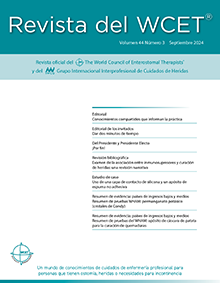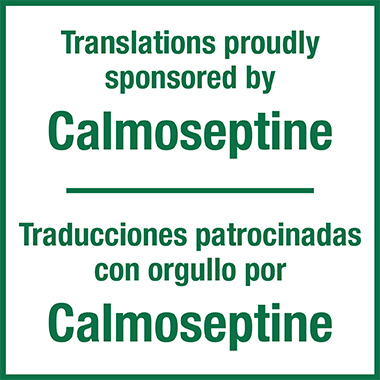
WCET Journal - Spanish Edition
Volume 44 Number 3
Release Date September 2024
ISSN 2208-5920
Literature review
Examining the association of immunosuppressants and wound healing: a narrative review
Aria Appoo, Brandon L Christensen, Ranjani Somayaji
Case study
Use of a silicone contact layer and non adhesive foam dressing
Helen Carter, Jenny Prentice
Evidence summary: low- and middle-income countries
WHAM evidence summary: potassium permanganate (Condy’s crystals)
Emily Haesler
Evidence summary: low- and middle-income countries
WHAM evidence summary: potato peel dressing for healing burns
Emily Haesler
Supplement original article
The role of standardised product terminology in product development and clinical practice
Greg Czaplewski, Kim Smitka
Supplement original article
The world is no longer flat
Colleen Drolshagen, Renee Malandrino, Jessica Simmons, George Skountrianos, Wil Walker
Supplement original article
Translating the evidence into clinical practice – a journey through change
Rosemary Hill



